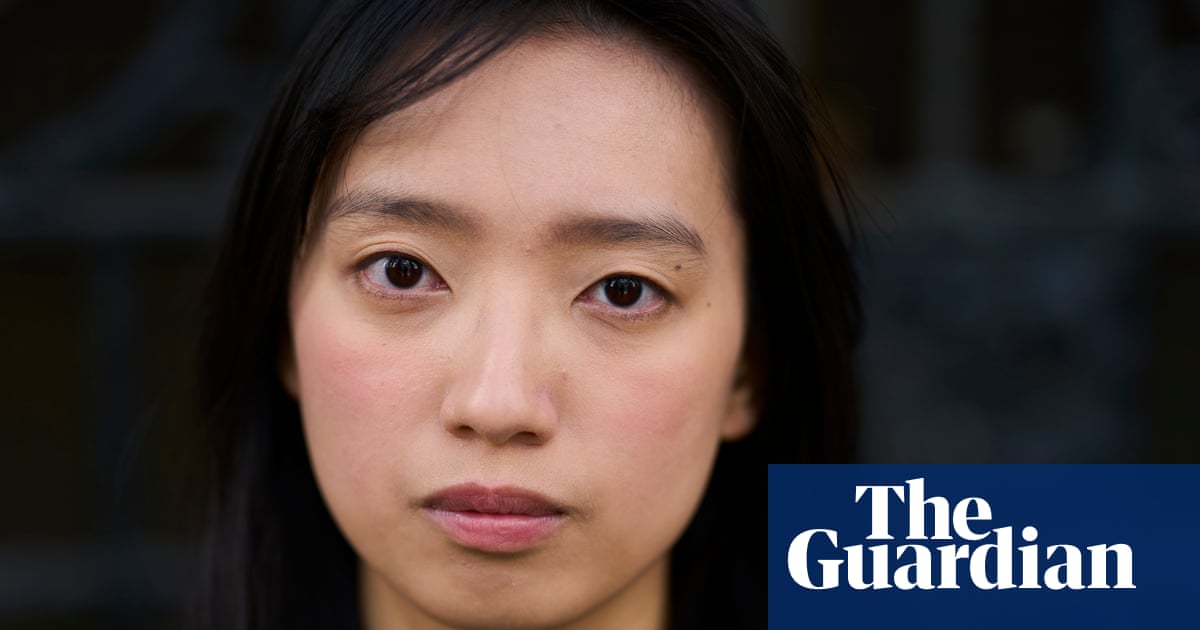
It was Christmas Eve 2024 and 19-year-old Chloe Cheung was lying in bed at home in Leeds when she found out the Chinese authorities had put a bounty on her head. As she scrolled through Instagram looking at festive songs, a stream of messages from old school friends started coming into her phone. Look at the news, they told her.
Media outlets across east Asia were reporting that Cheung, who had just finished her A-levels, had been declared a threat to national security by officials in Hong Kong. There was an offer of HK$1m (£94,000) to anyone who could assist in her arrest or capture.
News reports included a photograph of her aged 11, seemingly the only picture officials had of her before she and her family left to resettle in the UK in 2020. “I couldn’t even really recognise myself,” she says.
Cheung says she was still in a state of shock as friends started jokingly congratulating her on her infamy. After finishing school, she had been working as a communications assistant for a campaign group in the UK that advocates for democracy in Hong Kong.
She could barely believe that Chinese officials would care about a teenager living thousands of miles away. Yet, as friends started unfollowing her on social media, the life-changing consequences of what had just happened became clear.
“They were saying ‘sorry, but you are a criminal in Hong Kong now so we can’t be associated with you.’ Even friends here in Leeds said they would have to stop seeing me as they wanted to be able to go back to Hong Kong,” she says.
Cheung had dreamed of a gap year travelling the world and visiting friends in Hong Kong. Neither was possible now, after Chinese officials vowed to “pursue for life” Cheung and others they accuse of promoting democracy. Beijing has a history of targeting critics in exile and pressuring countries to detain and deport them.
“The bounty will follow me for ever. It’s a form of psychological warfare – telling the world that dissent has no safe haven. Even if you were just a teenager when you spoke out, you’re not safe,” says Cheung.
But if China’s aim was to dissuade her from taking a public stance on Hong Kong or criticising it, it has not worked. Cheung says she has no intention of staying quiet.
Growing up in Hong Kong, Cheung says she always felt patriotic and used to “love running home for the flag-raising ceremony that happened on TV at 6.30pm”. But that all changed in 2019-20 when millions of people took to the streets of Hong Kong.
The demonstrators were protesting against the increasingly autocratic authority of Beijing and the control it wanted to exert over the former British territory, which since 1997 has been classified as a “special administrative region” – part of Chinese territory but governed under separate rules and laws to the mainland.
Transnational repression is the state-led targeting of refugees, dissidents and ordinary citizens living in exile. It involves the use of electronic surveillance, physical assault, intimidation and threats against family members to silence criticism. The Guardian’s Rights and freedom series is publishing a series of articles to highlight the dangers faced by citizens in countries including the UK.
","credit":""}”>
Quick GuideTransnational repression
Show
Transnational repression is the state-led targeting of refugees, dissidents and ordinary citizens living in exile. It involves the use of electronic surveillance, physical assault, intimidation and threats against family members to silence criticism. The Guardian’s Rights and freedom series is publishing a series of articles to highlight the dangers faced by citizens in countries including the UK.
Until then, Hong Kong had been allowed a degree of autonomy from mainland China, including a partially democratically elected executive and an independent media.
From 2020, after several years of pro-democracy protests known as the “umbrella revolution”, Beijing began to impose closer control over the territory, including changing election laws so that only pro-Beijing “patriots” could run for office, and introducing extradition powers allowing it to transfer fugitives to the mainland.
The constitutional principle of “one country, two systems”, agreed with the British before the handover in 1997, was abandoned, with Hong Kong’s pro-democracy parties later disbanding as the possibility of peaceful political change receded.
“At the time I attended my first protest, I was expecting it to be completely peaceful because I was taught at school that we have freedom of speech and press in Hong Kong,” Cheung recalls.
“Then suddenly, the police started shooting teargas and rubber bullets at us and started arresting people really violently; dragging protesters and standing on their necks. I was just 14 and my worldview completely changed.
“I realised whatever we had been learning in school was a lie,” she says. “I’d been brainwashed. I felt helpless and fooled.”
after newsletter promotion
Thousands of protesters and opponents of the new powers were arrested and charged in a brutal crackdown that led to condemnation from countries including the UK, which offered residents in Hong Kong the chance to resettle. Although her parents were not political, Cheung says they could see that it was better for her and her younger brother’s future to move to the UK.
Her family, says Cheung, “knew I was someone who doesn’t know how to shut up. They didn’t want either of us to end up in prison for speaking our mind, because my mum said, ‘You are kind of nobody. No one would know that you’re in prison.’”
The family arrived in Leeds in 2020, where Cheung, then 15, threw herself into studying for her GCSEs. With the UK going through Covid lockdowns, she spent most of her time at home catching up on the syllabus and practising past exam papers. After a successful first year, she went on to study maths, further maths and economics for A-level.
Her first taste of activism outside Hong Kong came at 18 after she made a submission to the UN on the experiences of women during the 2019-20 protests in the city. She was later invited to the UN office in Geneva to join an NGO meeting on the topic. It was here that she met members of the Committee for Freedom in Hong Kong, which advocates for democracy.
“At that point I knew I could not afford to go to university yet [as she would have to pay the higher overseas tuition fees] so asked the committee if I could take a job working for them,” she says.
“I didn’t imagine it would be a career and when I was hired it was just on a short-term contract, more or less as an intern,” says Cheung. “I was happy just to save up money.”
She soon began taking on a more public role at the committee, speaking to MPs and journalists while using her real name. She thinks it was this that irked Chinese officials.
“I spoke with a lot of media and my quotes were used as someone who was born and grew up in Hong Kong and so with a personal connection. The authorities saw that and intentionally want to target people who have got a profile.”
After the bounty and warrant for her arrest were announced, Cheung says she did consider taking herself out of the public spotlight. “But I thought if I do this now everyone will know it is because I am scared and giving up,” she says.
“They [China] want to stop others from speaking out publicly, but I know I am fortunate to have my family here in the UK.”
However, it has not been easy. Cheung has faced an onslaught of sexual harassment and abuse via social media and was followed by two “suspicious-looking” Chinese men to a restaurant after an event. She reported the incident to the police.
She has had to change her address and is now cautious about meeting new people. In 2022, a pro-democracy protester demonstrating on the pavement was dragged into China’s consulate in Manchester before being beaten up in a “barbaric” attack.
“It was certainly because a UK police officer broke diplomatic protocol and stepped into the grounds of the consulate to save him that something worse didn’t happen to that protester,” she says.
“He could have disappeared. It’s just a matter of time before someone is kidnapped or killed, given how much China is escalating their overseas repression.”
Aside from her personal safety, Cheung realises her public profile is now limiting her future choices in life. “I have shut off a lot of job opportunities with any company that has business ties or trade with China. They won’t hire me now.
“I don’t expect to live a normal life, but compared with the people in prison back in Hong Kong, my sacrifice is nothing. I really want to see a free Hong Kong so if my public role can help the situation a little bit, it will be worthwhile.”
A spokesperson for the government of the Hong Kong special administrative region said Cheung was an “absconder hiding in the UK” and wanted for “blatantly engaging in activities endangering national security”. They added that she would be “pursued regardless of distance”.


